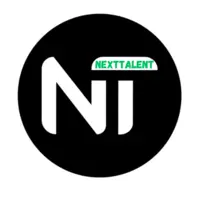

Manila NCR, Philippines, credit: Cronica Cyreel Silvestre  
Author: Leticia C. Tendero, Director of Investor Relations, Standard Insurance
The non-life insurance industry has shown remarkable adaptability, endurance and resiliency amid the manmade and natural catastrophe events, regulatory mandates, paradigm shifts in the business models, market landscape and hardened reinsurance market, among others. It has always been able to rise above these challenges.
Challenges precede silver linings, as the non-life insurance industry has constantly gone through considerable disruptions. Despite regulatory changes, economic downturns, and increased losses due to natural disasters, there are always underlying positives like innovation, improved risk management strategies, and new market opportunities. Such is its resiliency that it is able to survive and thrive despite the adversities.
The progressive capitalisation mandated by the government presented challenges, especially to those who were undercapitalised and struggled to meet the mandated capital escalation. The eventual reduction in the number of companies, from 66 non-life and four composite insurers in 2016 to 46 non-life and eight composites by July 31, 2024, was a result of a period of consolidation and the entry of foreign players. These changes have ultimately strengthened the industry, making it more financially robust and better equipped to handle uncertainties.
The Covid-19 era ushered in the evolution of digitalisation, borne by the need for lockdowns, which eventually led to data-driven transformation. Now digitalisation has advanced further with the integration of artificial intelligence (AI), giving early adopters a significant competitive advantage.
Moreover, with the increasing risk exposures to catastrophic events in recent years, exacerbated by climate change, the Philippine non-life insurance industry is experiencing a sudden surge of reinsurance costs, leading to higher prices for non-life product lines. Reports have it that reinsurance rates in the Philippines have surged by 50–60 percent, significantly increasing the cost of non-life insurance products. This rise is also partly attributed to the costly shift of some large companies from quota-share treaties to excess-of-loss treaties, as well as inflation pressures impacting insurance costs and replacement costs.
Another promising development is a legislative bill that aims to rationalise the non-life insurance industry’s tax burden, a burden passed on to policyholders. Presently, non-life insurance policies are subject to 12 percent VAT and 12.5 percent documentary stamp tax (DST) on insurance premiums, while life insurance policies are subject to a one-time DST of P20–P200 depending on the amount of insurance and a two percent premium tax instead of VAT. Congress has recognised this tilted taxation and has proposed a legislation rationalising DST rates for the non-life insurance industry, thereby re-establishing a more equitable tax regulation, comparable to rates imposed by other ASEAN countries.
An industry game changer
Standard Insurance’s ability to innovate, enhance risk management initiatives, and seize new market opportunities illustrates its capacity to not only survive, but to thrive and soar amid adversity. The company has always been pro-active in its preparation for both manmade and natural catastrophic events.
The challenges of the past three years were focused on navigating and creating a mindset of perseverance, of meeting the challenges head on, of constantly innovating, rebuilding our systems to be more responsive to engagements with the clients, systematically and effectively meeting the changing demands of the evolving market, of enhancing digitalisation capabilities; but more importantly, always keeping in mind our corporate ethos – working as a team, embracing our culture of passion for excellence, underpinned by our massive transformational purpose, peace of mind for all mankind.
The company’s associates embraced the challenge of constantly exceeding its own standards and targets. With the evolving market demographics, and with the Millennials and Gen Z leading the market, these generational market bases expect a high level of fast and efficient delivery of service and digitalisation of processes throughout the whole insurance journey. While digitalisation and AI platforms revolutionised the way we interact with our consumers, these may stunt creativity and may eventually lack the potential for human touch in servicing our market. Standard Insurance is committed to maintaining a certain level of ‘human touch and personalisation’ in the delivery of service, thereby providing a service experience that distinguishes us. We constantly remind ourselves that we sell to actual people who value the overall experience, not just the marketing, sales, or service factors.
Leveraging the Standard Insurance brand to emphasise its values and unique offerings became pivotal for driving business growth. With new brands and products emerging daily, establishing added advantages over competitors is of utmost importance, with the objective of capturing the attention of digitally connected consumers.
Among the many digital trends in 2023 and 2024, AI and machine learning, influencer marketing, the prevalence of video marketing, the resurgence of native content, and the evolving impact of privacy on ads stood out. These trends primarily manifested through tools such as Google Analytics and the algorithms of Meta and Google. Looking ahead, the company remains committed to leveraging native content strategies shifting this time to our product attributes.
Additionally, continued exploration of influencer marketing and optimisation of AI-driven tools will be integral to maintaining a competitive edge in the evolving digital landscape. The use of AI and embedding this to some of the company’s underwriting and claims procedures were implemented, with the objective of streamlining processes and accelerating the quality of customer experience. AI was used to hasten Compulsory Third Party Liability (CTPL) and comprehensive motor car policy issuance in ISSI Office, an insurance app used by our agents. It was also used in document reading to speed up travel claim payments.
The challenging reinsurance scenario
The company’s risk portfolio is consistently and adequately protected by dependable and financially strong reinsurance facilities, the majority of which have been supporting the company through the years, especially during the most recent and most challenging ones. Despite the inherent challenges in the market, Standard Insurance was able to finalise and renew its treaty programmes for 2022 to 2023 through 2024 to 2025 prior to treaty expirations. This renewal is rooted in our credibility and prudent underwriting discipline, factors that have set us apart from competition, despite the hardening of the reinsurance market in recent years.
Standard Insurance remains consistently vigilant in protecting our financial viability, vis-à-vis the underlying risk portfolio. We perform selective and stringent underwriting with a focus on maintaining and developing a spread of risk that is consistent with the company’s directives for sustained profitable growth. The company decided to pro-actively implement relatively new underwriting initiatives, even within the industry, which may prove to be game changers.
Optimisation of AI-driven tools will be integral to maintaining a competitive edge in the evolving digital landscape
For the motorcar portfolio, underinsurance was a challenge as prices of materials and repair costs spiralled on the back of inflation in both the global and local markets, as well as the effects of the Covid-related economic disruptions in the global and local economies in recent years. Hence, the company’s underwriting guidelines were aligned with Standard’s FMV system with the objective of addressing market competition and minimising underinsurance.
Additionally, the clean-up of motorcar accounts with poor loss performance, or the new MALUS table, was strictly implemented across all sales units. Compliance to the risk management division’s (RMD) renewal recommendations, either increased rates or non-renewal, was closely monitored. Other initiatives included restrictions on maximum acceptable age of motorcar vehicles, business review of portfolio accounts and aligning rates according to the company’s risk rates, and the review and non-renewal of non-performing fleet accounts.
On the property portfolio, one of the biggest initiatives of our RMD as part of its responsibility in 2023 was to re-educate our associates about the adequacy of clients’ insurance regarding the basis of the policy sum insured, and then cascade this to our clients to ensure that we are all in agreement in the event of a claim. Additionally, the company took a pro-active stance, releasing a general advisory to all property policy holders on the parametric cost estimates together with the fire insurance FAQs brochure.
By default, property insurance covers are based on sound value where depreciation is computed at the time of loss. Requesting the client to have their asset professionally appraised so that insurance cover is based on replacement cost, thus avoiding depreciation calculations at time of loss, would mean additional cost which clients are generally resistant to. The campaign on the adequacy of sum insured for property accounts is nearing its one-year cycle for branches’ accounts and is being cascaded across all sales units this year.
Further, with the increasing reinsurance costs, the company saw the opportunity of increasing policy rates but not yet enough to fully cover the risks undertaken, albeit higher than the risk rates in the last two years, thus allowing us to pass on to clients the impact of the increased RI cost. Further, a mandatory renewal review, especially for those with incurred losses, was implemented.
Our risk management team, our underwriters and risk engineers all work closely with the clients by doing regular site visits, having sit-down discussions on the updates of business operations, and making sure that all detection and protection systems are in good working condition and adequate for overall operations.
The danger of cyberattacks
The company has vigilantly avoided the danger of cyberattacks, a stark reality in this digital world. Cyberattacks are security incidents that can lead to breaches. At Standard Insurance, our infrastructure and cybersecurity team diligently manages and strengthens the company’s defences. This team implements a robust array of security measures, including endpoint protection, next-generation firewalls at all locations, data encryption, secure virtual private networks for remote workers, data loss prevention within our Google environment, and strict enforcement of security policies to safeguard data across all devices.
The company maintains a secure environment through real-time network monitoring, traffic scanning, and blocking of malicious connections. Regular vulnerability assessments and penetration testing are conducted, resulting in code reviews, server configuration hardening, and the adoption of advanced security technologies; security awareness training is provided to employees to ensure compliance with data privacy laws.
On July 19, a faulty update to CrowdStrike’s Falcon Sensor security software caused global disruption, affecting computers running Microsoft Windows. This was merely a technical glitch, not a cyberattack. This human error impacted 15 percent of our cloud servers. However, as a result of our resilient technology infrastructure, we were able to mitigate the overall impact on our organisation. Our team swiftly responded, implementing immediate remediation for the affected servers while ensuring that other essential systems remained operational. By working closely with our local vendors and continuously monitoring CrowdStrike’s support resources, the issue was resolved within five hours, minimising the disruption compared to the broader effects experienced globally by other organisations.
Standard Insurance does not merely chase after silver linings. It creates its own silver linings amid this unpredictable and evolving market. We believe in leading the way and being industry game changers.
#NonLife #Insurance #Thriving #Tough #Market


































































